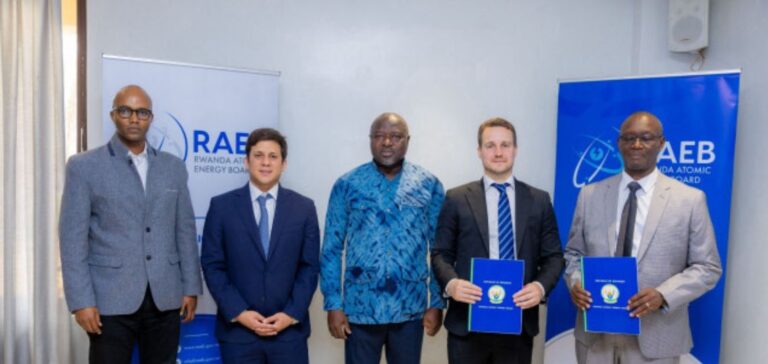Rwanda has formalized a crucial agreement with Nano Nuclear Energy for the introduction of small modular nuclear reactors (SMRs) on its territory.
This strategic partnership reflects the country’s desire to diversify its energy sources and strengthen its independence in a global context of energy transition.
SMRs, characterized by their mass production and their ability to be deployed on smaller sites, offer an alternative to more complex and costly traditional nuclear installations.
Currently, Rwanda’s energy mix relies mainly on thermal sources, accounting for 51% of the country’s electricity production.
With this agreement, Kigali aims to reduce its dependence on fossil fuels, while integrating advanced technologies to meet growing energy demand.
This choice is part of a broader decarbonization strategy, in line with the country’s environmental objectives and international commitments.
Rwanda in the global race for nuclear innovation
The Director of the Rwanda Atomic Energy Authority (RAEB), Fidele Ndahayo, emphasized the importance of this agreement for Rwanda, asserting that it positions the country in the global race to develop cutting-edge nuclear technologies.
By joining forces with Nano Nuclear Energy, Rwanda is equipping itself with the tools it needs to become a key player in Africa’s nuclear sector. At the same time, Rwanda is no stranger to nuclear energy.
In 2023, the country had already signed an agreement with Dual Fluid Energy to set up an experimental reactor, demonstrating its commitment to integrating nuclear power into its energy mix.
In addition, a partnership with Rosatom is underway for the construction of nuclear power plants, although this project has raised a number of safety concerns.
Towards regional leadership
By positioning itself as a pioneer in the adoption of SMRs, Rwanda is paving the way for new regional opportunities.
The development of these reactors could not only satisfy domestic energy needs, but also serve as a model for other countries in sub-Saharan Africa.
By collaborating with industry leaders such as Nano Nuclear Energy, Rwanda aspires to become a center of excellence for nuclear energy on the continent.
This project reflects Rwanda’s clear and ambitious vision of using the most advanced technologies to secure its energy future , while contributing to global decarbonization efforts. By implementing these initiatives, the country is equipping itself with the capabilities needed to meet tomorrow’s energy challenges, while at the same time building a sustainable growth dynamic.





















